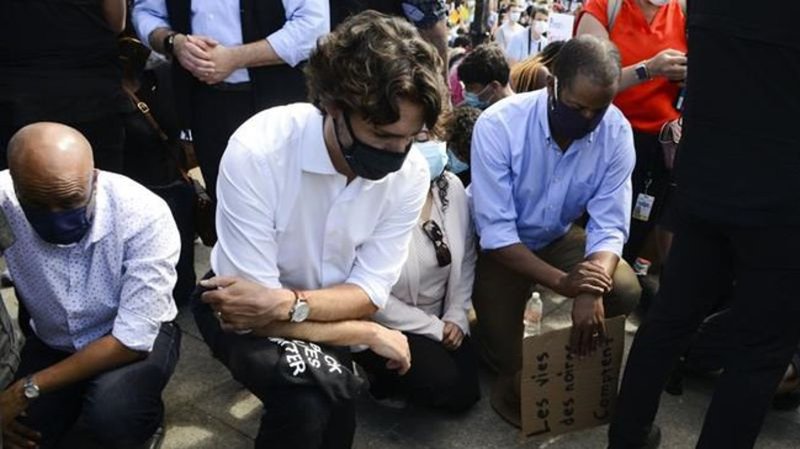
Year in review: A look at news events in June 2020
A look at news events in June 2020:
01 – Federal health officials said nursing homes had reported nearly 26,000 deaths among residents from COVID-19.
01 – U.S. President Donald Trump declared himself “the president of law and order” amid ongoing racial unrest across the country. Trump threatened to deploy the military to American cities if state governors and the National Guard couldn’t quell the violent demonstrations. Even as Trump spoke in the White House Rose Garden, loud tear gas explosions could be heard as military and law enforcement moved peaceful protesters in nearby Lafayette Park. Following his speech, police used tear gas to clear protesters before Trump made a quick trip to the nearby St. John’s Church for a photo-op.
02 – Prime Minister Justin Trudeau took a long pause before he answered a question about the racial violence going on in the U.S. Speaking outside his home, Trudeau stood silently for a time before answering that Canadians are looking at the violence in the U.S. with “horror and consternation.” He went on to say it’s also a time for Canadians to recognize that we too have issues with racism, calling systemic racism a “lived reality” for Canadians of colour.


